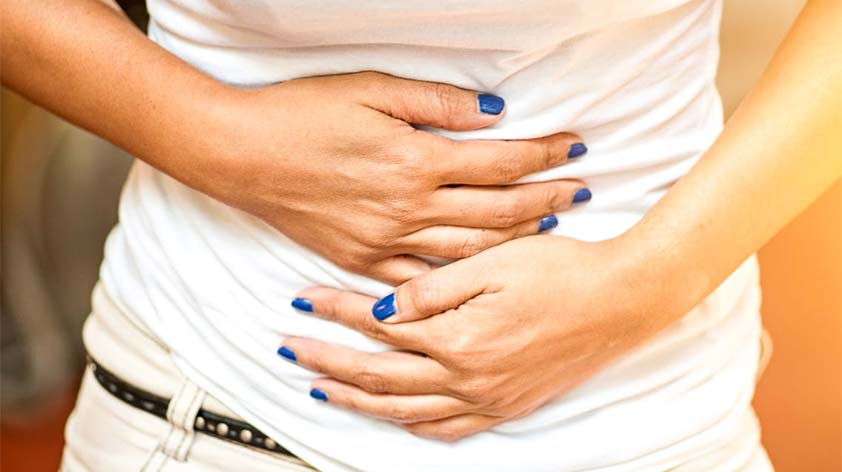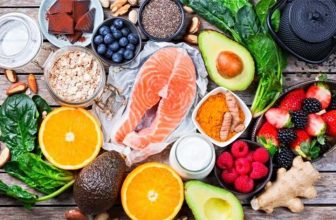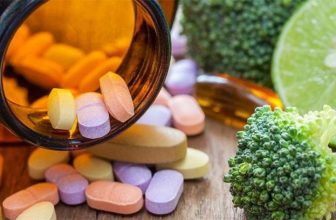
Have you ever suffered from bouts of stomach cramping and bloating but never understood where it comes from or why it’s happening? Well the answer could lie within the food that you eat on a day-to-day basis. Many foods are high in something called FODMAP which is responsible for many of the problems that people with bowel issues suffer from. This article aims to highlight what FODMAP is, and how it causes digestive issues as well explaining the potential benefits of a low FODMAP diet. Continue on and find out more in: FODMAP: Foods Could Be Causing Your Bloating, Cramps & IBS Issues!
What are FODMAP Foods?
FODMAP stands for Fermentable Oligosaccharides, Disaccharides, Monosaccharides and Polyols. These are short-chain carbohydrates (sugars) which the small intestine has difficulty digesting.
To keep things simple, you can consider FODMAP’s as a group of carbohydrates that are indigestible or poorly absorbed by certain people (common in people with irritable bowel syndrome, IBS). This can lead to many different problems in people such as bloating, stomach pain, flatulence and diarrhoea.
There are 5 common FODMAPS found in most foods: fructose (in many fruits and vegetables), lactose (in dairy), fructans (in wheats and grains), galactans (in legumes), and polyols (often used in sweeteners).
How Do They Affect You?
The problem with FODMAP’s is their resistance to the process of digestion, meaning they can effectively pass through your intestine unchanged.
FODMAP’s draw excess fluid into the small intestine as they travel through the gastrointestinal tract, this contributes to diarrhoea. Eventually, they get fermented and are used a source of fuel for gut bacteria (similar to dietary fibre).
Usually friendly bacteria produce methane however, the bacteria that use FODMAP’s produce hydrogen which leads to bloating, stomach cramps and constipation.
High FODMAP Foods
There are surprisingly a lot of high FODMAP foods, reducing or cutting them from your diet might be beneficial, here is a list of some high FODMAP foods:
- Fruits: Apples, Blackberries, Cherries, Dates, Pears, Peaches, Watermelon
- Vegetables: Asparagus, Broccoli, Brussels Sprouts, Cabbage, Mushrooms, Onions, Peas
- Dairy: Milk (cow’s, goat’s, sheep), ice cream, soft and fresh cheeses (e.g. cottage and ricotta) whey protein
- Wheat: Bread, Pasta, Cereal, Crackers, Tortillas
- Legumes: Beans, Chickpeas, Lentils, Red Kidney Beans, Baked Beans, Soybeans
Low FODMAP Foods
There are many foods that you can eat on a low FODMAP diet, here are a few:
- Meats, Fish and Eggs
- Fats and Oils
- Fruits: Blueberries, Grapefruit, Grapes, Lemons, Limes, Oranges, Raspberries, Strawberries
- Dairy: Lactose-free products, hard cheeses
- Vegetables: Bell Peppers, Bok Choy, Carrots, Celery, Cucumber, Lettuce, Spinach, Tomatoes, Zucchini
- Grains: Corn, Oats, Rice, Quinoa
Why You Should Try a Low FODMAP Diet
For those who suffer from bowel issues such as IBS, a low FODMAP diet might just be the game changer for you. Research has shown that such a diet can reduce symptoms in at least 75% of people with IBS.
Most people report significant improvements in their quality of life as a result of small dietary and lifestyle changes. However, a complete change in diet can be challenging, and even counterproductive, so it is advised to make a gradual conversion, that way you’ll be more likely to stick with the changes.
In a nutshell, that’s FODMAP! It’s a term I’ve only recently learned about, but in that short time, it has drastically improved the stomach issues that have plagued me since my youth.
I hope this information can help you all as much as it has helped me. Everybody is different and therefore will react to different foods in different ways. So my honest advice would be to analyse what you react best to, and worst to, and note it down! Then you can quite easily figure out what foods work best for YOU.
Are you all properly ‘FODMAPPED’ to avoid intestinal issues? Let us know in the comments below, and join in the conversation on Facebook, Twitter & Instagram!









